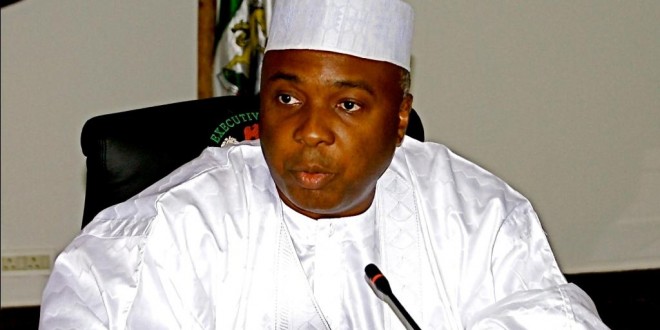The long wait is over as President Muhammadu Buhari (PMB) had submitted the 1st list of the ministerial nominees to the senate for screening. The screening process will start soon to enable establishing a federal cabinet for the 2016 budget process to commence soonest. Already in the list one can see 3 names that can potentially be assign to ‘Minister of Health’ and Minister of State for Health’ if screened and appointed by PMB. Whether those 3 happen to meet our minimum standard or not chances are 2 of them will emerge to lead our health sector. We must be prepared to continue our advocacy and sensitization.
My intervention today is about some potential questions that the senate could ask the likely nominees that will head the health sector so that the nominees are aware what need to be done and how their previous experience could help in catalyzing action for change in the health sector.
It is important for the senate to ask about their knowledge about global happenings and how that could shape Nigeria’s post 2015 health agenda. Are they aware of the events that happened during the just concluded United General Assembly in New York particularly on Friday 25th and Saturday 26th September 2015?
The launch of the Global Strategy for Women’s, Children’s, and Adolescents 2.0 covering 2016 -2020 which will build on new evidence, including the need to focus on critical population groups such as newborns, adolescents and those living in fragile and conflict settings, build the resilience of health systems, improve the quality of health services and equity in their coverage, and work with health-enhancing sectors on issues such as women’s empowerment, education, nutrition, water, sanitation and hygiene. It will align with the targets and indicators developed for the 17 Sustainable Development Goals framework.
How will the nominees situate Nigeria in all these global targets and what could they do differently to improve quality of care in line with these global standards?
Another question is on Nigeria and health related Millennium Development Goals. The last 15 years have being unprecedented all over the world with one clarion call ‘implement Millennium Development Goals (MDGs) and achieve all its targets by 2015. 15 years is over and we are now in 2015 and saying a final good bye to MDGs and welcoming Sustainable Development Goals (SDGs). The senate should be interested to ask the nominees Nigeria’s progress, achievements and challenges in achieving reduction of maternal and child deaths. What were the interventions that supported reduction of maternal and child deaths and what innovations and experience are they bringing to the table to improve and sustained quality of services?
The senate should also ask questions related to health care finances. For example Nigeria is unable to co- fund its 2015 vaccine procurement, World Bank had to bail out the country with a soft loan. We are unable to procure Reproductive Health and Family Planning Commodities in line with the FP2020 London Summit Commitment, international development partners are helping us out with that. Our health budget over the last 7 years as compared to the national budget is never above 8%, far from the 15% Abuja declaration and our per capita spending on health annually isn’t up to half of the standard requirement of $86. What will the nominees do differently to reverse this trend?
Also the recent 2013 Abuja+12 Declaration had demonstrated renewed leadership on health. As Africa’s health policy instruments expire in 2015 coinciding with the end of the Millennium Development Goals the African Union has started the process of consultations to come up with catalytic actions to end AIDS, TB and Malaria by 2030. African Heads of State and Government decided at the Johannesburg Summit in June this year to extend the AU Roadmap to 2020 to ensure that it is fully implemented. What will the nominees do to ensure we raise domestic finances to fund our health sector?
The PMB government had already understood the issues to tackle if meaningful progress will be made in the health sector. In the APC dialogue report the chapter ‘Achieving Qualitative & Affordable Healthcare’ highlighted that “Nigeria’s healthcare sector is in need of reform. Lackluster infrastructure, inequality in access to services, poor medical personnel training and equipment, rampant corruption and failure to pass and implement crucial reforms has resulted in Nigeria’s healthcare system lagging most countries on key health indicators and negatively impacting Nigeria’s potential growth. As a first initiative, improving access, accuracy and availability of health related data is required to establish a baseline for target setting and results tracking.” Are the nominees aware of this important policy document? Have they read it and how do they intend to turn it from paper to action?
The report also indicated that the PMB is aware that Nigeria has a low life expectancy of 53 years vs 71 years in Egypt and a high infant mortality of 85 per thousand live births vs 15-20 in Egypt. And also is fully aware of the key challenges in the health sector as identified by the dialogue as follows; Insufficient funding, health expenditure accounts only for 3% of GDP vs. 11% for South Africa, US$400M required to fund vaccinations per year, but currently FG does not have resources for that.
Can these challenges be addressed by the nominees? How? What are their strategies to implement the National Health Act and other policy documents?
I wish the senate and the nominees all the best.
1st published in Daily Trust Newspaper of 13th Oct 2015 by Dr Aminu Magashi Publisher Health Reporters (healthweekly@yahoo.com)




